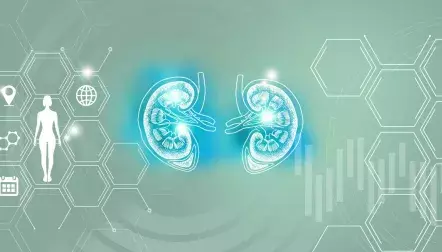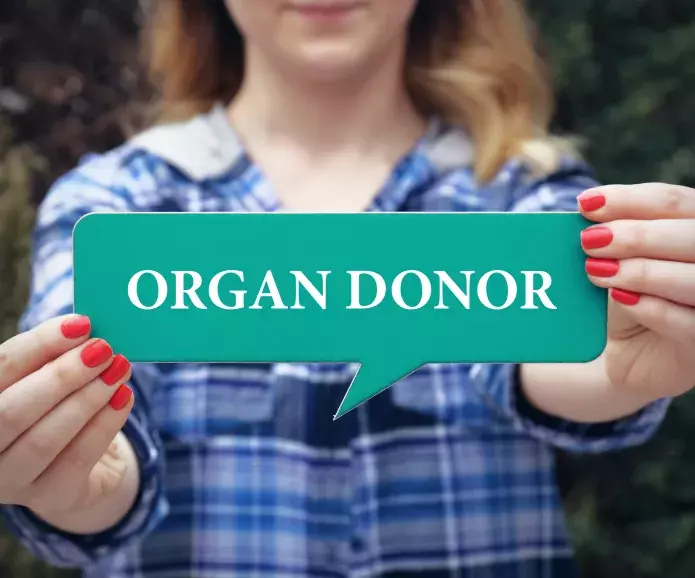
How to ask for a kidney donation

- Medically reviewed by
- AKF's Medical Advisory Committee
- Last updated
- March 28, 2022
To get a kidney from a deceased or a living donor, you will first need to go through an evaluation at a transplant center. After you pass the evaluation, the transplant center will add you to the transplant waiting list. You will be on the waiting list until a matching kidney from a deceased donor becomes available. Most people in the United States wait about five years for a kidney from a deceased donor, but how long you will wait depends on many factors. For example, some regions have longer wait times than others.

You may be able to shorten your wait time for a new kidney if you find a healthy living donor who is a match. Every year, thousands of people volunteer to donate one of their kidneys to someone they know battling kidney disease. Some people even volunteer to donate a kidney to someone they do not know. Living donors will need to be evaluated by your transplant team to find out if they are the right match for you.
You may not know how to go about finding someone to donate a kidney. It may even feel awkward to ask for a kidney donation, but here are things you can do to help your search for a living donor:
- Start by asking your friends and family. Though not always, people in your family often are good matches for a kidney donation.
- Practice sharing your story. Kidney disease is not a condition you can see. Many people in your life may not even know you have kidney disease and need a new kidney. It may be hard to talk about, but needing a new kidney to live is nothing to be ashamed of. Get comfortable sharing your story with others. You can write down talking points, or a script and practice on your own or with someone you trust. Think about how to bring up the subject, what questions people may have for you and what you are willing to share. This will help make future conversations easier.
- Think about how to ask. You know your friends and loved ones best. How you decide to reach out to people is completely up to you. You can:
- Schedule a time to meet in person at a place where you will be comfortable having the conversation.
- Send an email. It may be easier to start the conversation when you can get your thoughts out all at once.
- Make a phone call. Remember to ask if it is a good time to talk. If not, schedule a time to call back.
- Share your story on social media if you want to reach more people. Set your post to "public" if you would like other people to share it.
- Know the process. People like to have as much information as they can when they make a decision. Many people know very little about organ donation and it can be scary to think about giving away one of your vital organs. Be prepared to talk about the evaluation process for living donors as well as the surgery. When you explain the process and the benefits of living transplants, also be sure to mention the risks. It shows others that you are thinking about their needs. People will appreciate that you care about how this decision may affect them too.
- Make it a two-way conversation. You do not have to do all the talking. Ask questions to break the ice, give yourself a break from talking and allow the other person to tell you what they are thinking. Sample questions to ask:
- What do you know about kidney disease?
- What do you know about kidney transplant or and living donation?
- What are your thoughts so far?
- What do you think of the pros and cons?
- Do you have any questions for me?
- Are there any ways you can help me spread the word?
- Leave the conversation open-ended. Choosing to become a donor is a big decision. Focus more on starting the conversation and less on getting an answer on the spot. Share resources that can help people to learn more. Give them your transplant center's contact information. Ask them to reach out to you if they want to discuss further. Let them know that they do not have to provide an answer immediately.
- Do not count people out. First, start with family members. They have the best chance of being a donor match. Then, think about friends and others you know. Some people may think they cannot help because of their blood type. This is not always the case. In a paired exchange, your relative or friend gives a kidney to someone else who needs it and that recipients' relative or friend can give their kidney to you. Be prepared to talk about all available options.
- Expand your search. If you are unable to find a donor among the people you know closely, do not give up. Every person you talk to can potentially become a champion for you. If you are comfortable, you can ask them to tap into their networks and spread the word about your need for a new kidney.
- Be kind to yourself. Remember, asking for a living kidney donation is a brave step in the right direction. The people you are talking to know it is not an easy conversation to have. It is okay if you do not get the answer you hope for on your first try. By having the conversation, you are educating others about kidney disease and the importance of organ donation. The more conversations you have, the easier it may become.
Are you ready to make the ask? Here is a template you can use to get started with writing an email.
Hi. This may or may not be your first time hearing this but in [include year], I found out that I have kidney disease. [Make it personal. Include as many details as you would like about your personal kidney disease story. You can talk about what it is like going to dialysis, how you feel about your diagnosis, any challenges you have faced. You can also include more details about the type of kidney disease you have]. My kidney function has gradually gotten worse and I am at the point where my treatment options are very limited. I can either continue to go for regular dialysis treatments for the rest of my life or get a kidney transplant. For people like me, a kidney transplant can increase the chances of living a longer, healthier life. My dialysis can only do a fraction of what your healthy kidneys do for your body every day. I am likely to live longer with a transplant than if I stay on dialysis. I am currently on the national deceased donor waiting list. The average wait time is five years. The only other way to shorten the wait time is for me to get a transplant is from a living donor. Even though most of us are born with two kidneys, we only need one healthy kidney to survive. That means you or someone else you know could save a life by choosing to be a living donor. Kidneys from living donors can even last almost twice as long as kidneys from deceased donors. Of course, a kidney transplant is a major surgery for myself and my donor, so it does have risks. However, transplant surgery is generally safe and often successful. There is no telling when I will get that call from my transplant center that a kidney is available for me. So, while I wait, I am choosing to focus on what is in my control. I have decided to start my own search for a living donor. It is not easy but I am reaching out to people closest to me for help.
Thank you! |
Here is a shorter template for a social media post.
Hi. This may be your first time hearing this but in [include year], I found out I have kidney disease. My kidney function has gradually gotten worse and I have two treatments option: stay on dialysis for life OR get a kidney transplant. The average wait time on the deceased donor list is five years. I do not know when I will get that call that a kidney is available for me, so I am looking for a living donor while I wait. Please let me know if you can help in my search or if you want to learn more. Thanks! |

